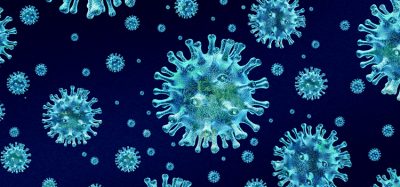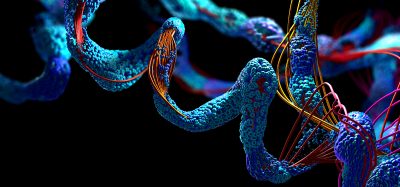Blood plasma proteins hold answers to better understanding long COVID
Posted: 11 July 2023 | Izzy Wood (Drug Target Review) | No comments yet
10 to 20 percent of individuals that get COVID-19 will be later diagnosed with long COVID. New research looks at blood plasma protein patterns that can improve patient outcomes.

A team at Lawson Health Research Institute, Canada, has discovered unique patterns of blood plasma proteins in patients with long COVID, that could reveal potential drug targets to improve patient outcomes.
Currently, 10 to 20 percent of people with a confirmed case of COVID-19 will be diagnosed with long COVID.
“Those patients experience a wide variety of symptoms, which may include fatigue, brain fog and difficulty breathing,” said Dr Douglas Fraser, Lawson Scientist and Critical Care Physician at London Health Sciences Centre (LHSC). “Their quality of life can be significantly altered, so anything that we can do to learn about this disorder and identify potential treatment targets is very important.”
Called “the plasma proteome,” the proteins being studied are found in blood plasma and are released by cells that often play an important role in the body’s immune response to viruses. The research team is studying how those proteins adapt and change in long COVID.
“Trying to understand this mechanism is quite important because it provides further insight into how patients are affected,” explained Dr Michael Nicholson, Associate Scientist at Lawson and Respirologist at St Joseph’s Health Care London. “This paper sheds further light onto several possible mechanisms that may provide insight into why some patients have certain symptoms.”
As part of the study, published in The Journal of Translational Medicine, blood plasma samples were collected from long COVID outpatients through the Post-Acute COVID-19 Programme at St. Joseph’s and analysed in comparison to acutely ill COVID-19 inpatients at London Health Sciences Centre (LHSC), as well as compared to a group of healthy volunteers.
“We used novel technologies for this study, allowing us to analyse more than 3,000 proteins in each patients’ blood plasma sample,” explained Cristiana Iosef, Research Analyst at Children’s Health Research Institute (CHRI), a programme of Lawson. “We used novel bioinformatic pipeline, which uses artificial intelligence (AI) technology, to then analyse the proteins to determine the specific changes that occur in long COVID.”
By using advanced technology the researchers were able to determine unique signalling patterns from the blood proteins. The team discovered that people with long COVID have prolonged inflammation associated with changes in their immune cells and blood vessels. These changes may lead to problems in specific organs, like the brain and the heart.
The proteins discovered could serve as a future diagnostic test, as well as reveal potential drug targets. The team is now examining potential new drug therapies with the hopes of improving outcomes for these patients.
“When we identify these signalling patterns within the blood plasma, we can then take the information and screen drug databases to better understand which drugs would be best to target the changes we identified in long COVID patients,” explained Fraser.
“With this understanding, the identified drugs may be used in future long COVID clinical trials.”
Related topics
Bioinformatics, Covid-19, Proteomics
Related conditions
Covid-19, Long COVID
Related organisations
Children’s Health Research Institute (CHRI), Lawson Health Research Institute, London Health Sciences Centre (LHSC)
Related people
Cristiana Iosef, Dr Douglas Fraser, Dr Michael Nicholson






